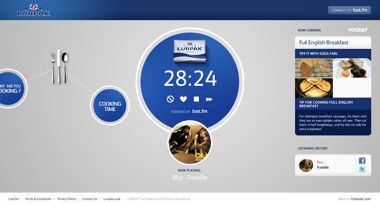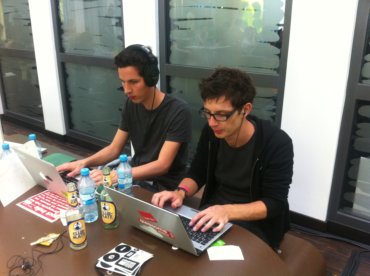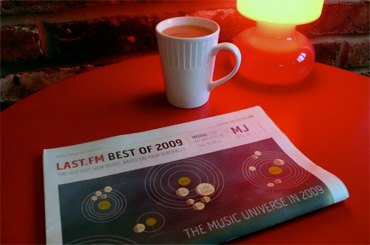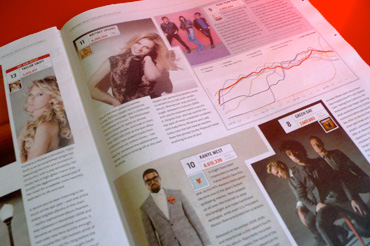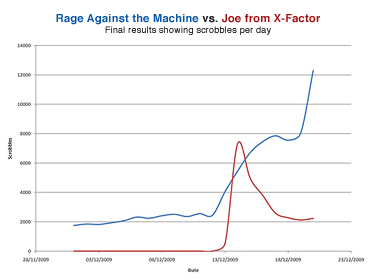Last weekend I was lucky enough to voyage to Stockholm with Jonty and Michael to represent Team Last.fm at Music Hack Day.
Music Hack Day’s premise is simple – find the best and brightest tech and music geeks, get them all together for a weekend, mix in APIs and workshops from every online music service worth its salt, and then spend 24 hours making… well, anything!
Started by Soundcloud’s Dave Haynes here in London last July, subsequent Music Hack Days in Berlin and Boston have cemented their reputation as the best tech events going, music or no. (Anthony from the Hype Machine did a nice write-up on some of the ingredients that make them great.)
So it was with some excitement that we boarded our plane on Friday and headed north. In addition to our standard hack day paraphernalia — laptops, check; giant headphones, check; world’s tiniest Guitar Hero, check — we also carted along some limited edition stickers, newspapers, and a short presentation on the venerable Last.fm API. (You can grab those slides here as a PDF download.)

Photo by Brian Whitman.
Stockholm certainly didn’t disappoint — the weekend was awesome! We came, we hacked, we even conquered.
We also learnt a lot. Some highlights included…
Swedish hospitality
“Hospitality” isn’t generally up there on the list of familiar Swedish traits (unlike, say, tasteful flat-pack furniture, or expensive booze). But our hosts — Henrik and Mattias — made everyone feel welcome and created an environment that let everyone just get on with creating cool stuff.
There were some uniquely Swedish touches too, like the delicious bread and cheese breakfasts and the snow-based beer fridge. Oh, and the Batmobile showed up. No, really.
APIs in the mirror
Though we’ve offered public APIs to developers since 2003, nothing makes you see them in a new light like face-to-face interaction with people trying to make clever and unusual things with them. We’ve come back to London with a long list of suggested improvements, things that could be clearer in the docs, and even a couple of bug fixes that were reported by intrepid Stockholm hackers. Thanks to everyone who spoke to us!
We also handed out free subscriptions to everyone who demo’d a hack that used the Last.fm API.
A few of our favourites:
- My City vs. Your City Uses our new geo.getMetro* city charts API to compare top artists across hundreds of cities worldwide. Neat!
- SimilarArtists A simple way to generate Spotify playlists of recommended music based on Last.fm similar artists.
- Holodeck An attractive way to create an artist website that based on content from SoundCloud, Last.fm, Songkick, and Tumblr.
- Mashboard A dashboard for your Soundcloud tracks that pulls in rich audio metadata from Echo Nest. And it scrobbles!
We also managed to sneak in a few hacks of our own:
- HacKey Ever wondered what your favourite key is? Thanks to the Last.fm and Echo Nest APIs, now you can find out.
- ProximRadio and Blobble Jonty and Michael came up with a deadly trio of new tech that enables a long-standing dream: proximity-based multi-profile radio stations, complete with group scrobbling. Whoa.
A complete list of hacks is available here.
The online music ecosystem = crazy delicious
It was humbling to be in the presence of so many talented companies and developers, from the music mad scientists of The Echo Nest to the streaming wizards of Spotify, not to mention entire teams who travelled to Stockholm from Songkick, Soundcloud, and many others.
It’s pretty clear that 2010 is going to be an exciting year in music and tech. (And not just because people are building Playdar-enabled beatmatched collaborative Spotify playlist generators that scrobble via robot arm attachments…although that helps.) Team Last.fm will be in attendance the next Music Hack Day and also at some events of our own, so stay tuned.
Until then, happy hacking!
]]>
